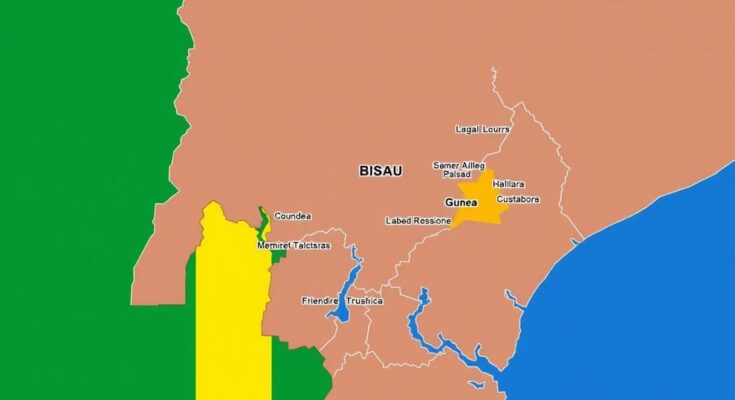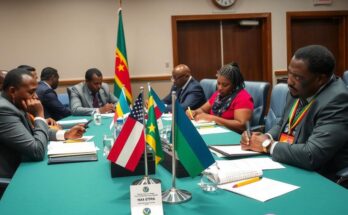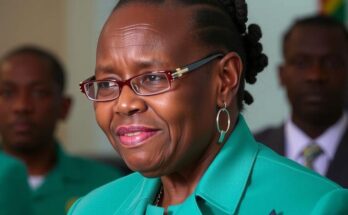Guinea Bissau’s President Umaro Sissoco Embalo has indefinitely postponed legislative elections originally set for November 24, deepening the country’s political crisis amid financial and logistical issues. The delay follows the prior dissolution of parliament and an attempt on Embalo’s authority, highlighting persistent instability in the nation.
On Monday, President Umaro Sissoco Embalo of Guinea Bissau announced the indefinite postponement of the legislative elections scheduled for November 24. This decision comes after the dissolution of parliament in December 2023, following armed clashes that Embalo labeled as an attempted coup. With the nation enduring persistent political instability and logistical challenges, officials had anticipated this deferral, a situation exacerbated by the country’s financial difficulties. The minister for territorial administration had previously cast doubt on the feasibility of the elections, emphasizing the need for considerable funding and resources. Despite the cancellation of the electoral decree, Embalo has yet to propose a new election date, indicating that further governmental actions will be required to navigate the ongoing political crisis. This situation is made more precarious by the looming presidential election, as the current political tensions with the opposition coalition have created a volatile environment. Since gaining independence from Portugal, Guinea Bissau has faced numerous turmoil, including coups and corruption, hindering the nation from achieving political stability.
Guinea Bissau, a small West African nation, has been grappling with severe political turmoil since its independence from Portugal. The country has been characterized by a series of coups and corruption issues, leading to ongoing instability. President Umaro Sissoco Embalo, who took office in December 2019, has faced significant opposition from the African Party for the Independence of Guinea and Cape Verde (PAIGC), which holds a parliamentary majority. This strained relationship has complicated the prospects for upcoming elections, as financial constraints and logistical obstacles continue to plague the electoral process.
The indefinite postponement of legislative elections in Guinea Bissau signifies a deepening of the political crisis that has long afflicted the nation. President Embalo’s inability to establish a new election date further complicates the country’s efforts to stabilize its governance. Given the historical context of political instability, corruption, and ongoing tensions with opposition parties, Guinea Bissau faces significant challenges in forging a path toward constitutional order and meaningful democratic processes.
Original Source: punchng.com




